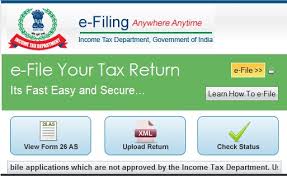
The Central Board of Direct Taxes (CBDT) has extended the due date for filing of Income Tax Returns (ITR) to 31st August, 2018. Earlier, the due date for filing of ITR for Assessment Year 2018-19 was July 31, 2018.
As the due date has been coming closer, the Board had received several requests from the tax practitioners body and the Institute of Chartered Accountants of India (ICAI) requesting a due date extension due to several reasons.
CBDT stated in a circular issued today, “The due date for filing of Income Tax Returns for Assessment Year 2018-19 is 31.07.2018 for certain categories of taxpayers. Upon consideration of the matter, the Central Board of Direct Taxes (CBDT) extends the ‘due date’ for filing of Income Tax Returns from 31st July, 2018 to 31st August, 2018 in respect of the said categories of taxpayers.
Generally, the income tax department extends the deadline by only a few days, but this year the deadline has been extended by full one month.
Kuldip Kumar, partner and leader, personal tax, PwC India, said, “Although due date extended.. those who have taxes to pay should pay before July 31 to save additional one month interest under section 234B.”
So, now if you don’t file ITR by the end of July then it won’t be treated as a belated return, as the new deadline is August 31, 2018. But if you miss the deadline of August 31, then according to the Income Tax Act, for returns pertaining to any financial year the last date for late return would be the end of the relevant assessment year. For example: For Financial Year 2017-18 (AY 2018-19), the last date would be 31 March 2019, and it would be your last opportunity to file the return.
From the current Assessment Year onwards, non-filing of ITR before due date will invite late fee of Rs. 1,000/5,000/10,000 as the case may be, under section 234F of the Income Tax Act.
The Board had notified the new Income Tax Return forms for the assessment year 2018-19 on April 5. The income Tax department has launched all the income tax forms for e-filing after more than a month of them being notified.
Further, due to GST and the over burden of compliance procedure, the tax practitioners were unable to finish their IT works. It is in this background, the people urged the Board to extend due date.
Read the Notification Circular: CBDT Notification




